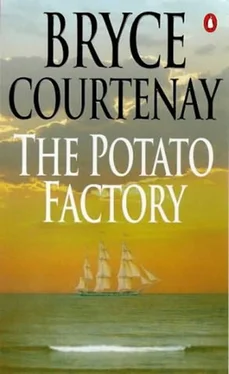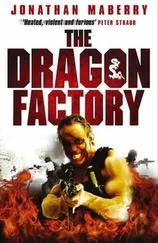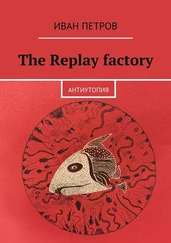Those who could still walk when daylight came would drag themselves into the bush on the slopes of the mountains to sleep until nightfall when they would re-emerge. Though most were harmless enough, their brains addled with alcohol, pathetic, shambling creatures, some were dangerous. Mary could not hope to construct a hut on her property where she might safely live, even though she had taken the precaution of learning how to fire a pistol which she always carried in her bag when she visited her clearing among the trees.
Mary was tempted to call her idyllic surrounding by some romantic name gathered from a book or taken from her native England, but in the end she chose, for reasons of sentiment and luck, to call her brewery The Potato Factory.
Mary argued to herself that the poteen still had been the true start of her great good luck. It had earned her a reputation for a quality product. Most of the sly grog available in the drinking dens and brothels of Hobart Town was more likely to kill the customer than to send him on his way happily inebriated. Her experience at the Cascade Brewery had shown her once again that quality was of the utmost importance, and she was adamant that it would become the hallmark of everything she did. When the time came to build the second Potato Factory she would boast that her beer was made from the finest hops and malt available, and brewed from the purest mountain water in the world.
If the association with the humble potato was a peculiar inheritance for a beer of quality this did not occur to Mary. While she had a very tidy mind she was still a creature of intuition, and she did what felt right to her even when logic might suggest she do otherwise. Mary was wise enough to know that few things in this world are wrought by logic alone, and that where men are often shackled by its strict parameters, women can harness the power of their intuition to create both surprising and original results.
In her mind Mary saw the chiselled stone of her malt house and the larger building of the brewery beside it with its enormous brick chimney rising above the trees. She would sometimes stand beside the falls which thundered so loudly they drowned out all other sound, and within the silence created by this singular roar, she would conjure up the entire vision. Mary could plainly see the drays lined up around the loading dock, hear the shouts of the drivers to make the great Clydesdale horses move forward, their gleaming brasses jingling as they left the Potato Factory to take her barrels of ale and beer to tavern and dockside. She looked into the bubbling water which rushed over smooth stones at her feet and saw it passing through imaginary sluice gates and along some elevated fluming and into the buckets of a giant iron water wheel which would power the brewery machinery. And sometimes, when the dream was complete, she would smack her lips and, with the back of her hand, wipe imagined froth from her mouth as though she could truly taste the liquid amber of her own future creation.
This world is not short of dreamers, but to the dreamer in Mary was added a clever, practical and innovative mind which once committed would never surrender. All grand schemes, she told herself, may be broken down to small beginnings. Each step she took, no matter how tentative it might seem, would be linked to her grand design and would always be moving towards it, if only a fraction of an inch each time. This was a simple and perhaps naive philosophy based on perseverance, on knowing that the grandest tapestry begins with a single silken thread. And so the first thing Mary did upon leaving the Cascade Brewery was to apply for a licence to sell beer. And here, once again, she had prevailed on the long-suffering Mr Emmett to help her with the recommendations she needed to obtain it.
Mary decided that even though she lacked the resources to start her own brewery she had sufficient to rent a smallish building which had once been a corn mill at the mountain end of Collins Street and which backed directly onto the banks of the rivulet. She named it the Potato Factory and converted it into a home brewery. In the front room she created a shop where citizens could buy a bottle of beer to take home. She used a small rear room in the building as her sleeping chamber and paid one of the mechanics at the Cascade Brewery to construct a small lean-to kitchen at the back. The remainder of the space in the old mill was given over to making beer.
The malt and yeast Mary used were of the highest quality, and she bought her hops from a wholesale merchant who imported it from England, as the product grown in the Derwent Valley was not yet of the highest standard. She made a light beer with a clean taste which was much favoured by the better class of drinker among the labouring classes, tradesmen and the respectable poor, and she soon attracted the favourable attention of the Temperance Society. Temperance members agreed to abstain entirely from the use of distilled spirits, except for medicinal purposes, so the society actively encouraged the drinking of beer, though in the home and not in public houses where, in the boisterous company of fellow drinkers, they might enter into the numerous evils, both moral and physical, which follow the use of spirits.
Her beer did not have 'the wallop' to appeal to the majority of drinkers, but the Temperance movement was growing rapidly in numbers, and right from the outset Mary prospered. She soon put a product on the market which she labelled 'Temperance Ale', and in six months it had become her mainstay. Mary, if only in the smallest way, was up to her eyes in the beer business, and at the same time she was favoured by the authorities for the quality of her product and the prompt manner in which she paid her taxes. There were even those within the third class, the tradesmen, clerks and smaller merchants, who considered that some day she might be admitted into their lofty and hallowed ranks.
But if Mary's great good luck had well and truly begun, the opposite to it lay waiting at her doorstep. Hannah and, eighteen months later, Ikey, were released into the community as ticket of leave convicts.
• • •
Ikey barely survived his seven years until he received his ticket of leave. He had neither hate nor dreams but only greed to keep him from despair.
Money had never meant anything to Ikey except as a means to an end. He played for the sake of the game – money was simply the barometer to show when he had won. He wasn't a gambler, for he figured his chances most carefully, weighing the odds to the most finite degree. Now, with seven years of penal servitude behind him, the game was no longer worth the candle. If he should return to his old life of crime and be caught again he knew he would certainly die, either in servitude or by means of the dreadful knotted loop.
Ikey told himself that, should he obtain the second half of the combination to the Whitechapel safe, he would retire to some far haven where he would live in peace and run a small tobacco business, with perhaps a little dabble here and a little negotiation there. But secretly he knew that he was a creature of London and captive to its crepuscular ways. He had disliked New York, and Rio even more, and judged the world outside England by these two unfortunate experiences. He knew that a return to crime in any significant way in Hobart Town would be both foolish and short-lived. Ikey was a marked man in the colony.
Three years on the road gang and two years thereafter as a brick maker in the penal settlement of Port Arthur, and another two returned to Richmond Gaol had been quite enough for him. His health had been destroyed in the damp road camps and in the brick pits. He had lost the courage for grand larceny, his bones ached with early rheumatism and his brain creaked for lack of wily purpose.
Читать дальше












